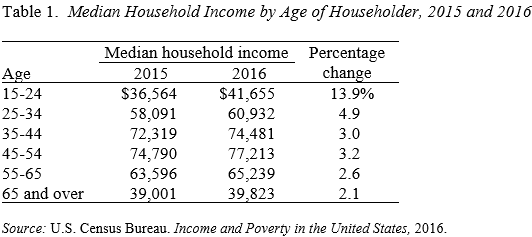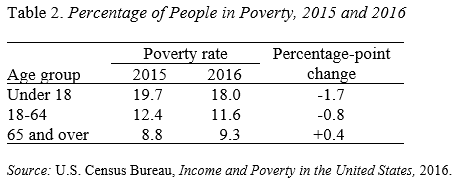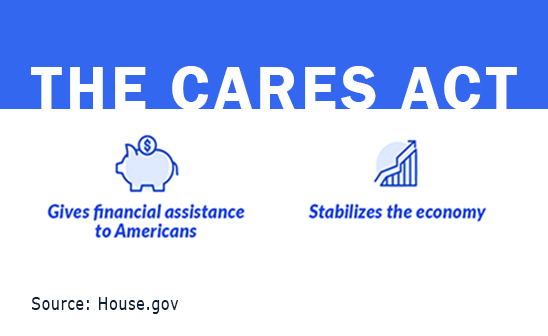
Strong Economy Raises Incomes, But Less So for Those 65+
Alicia H. Munnell is a columnist for MarketWatch and senior advisor of the Center for Retirement Research at Boston College.
Older people also do not enjoy a decline in poverty.
The recent Census report contained good news on income, poverty, and health insurance coverage. Median household income rose more from 2014 to 2016 than in any other two-year period on record; poverty declined significantly; and the share of Americans without health insurance fell to a record low. That is all terrific!
But my game is older people and retirement, so I naturally look at the numbers for households with heads 65+. And there the picture is not quite as rosy. While median incomes rose for all age groups, the increase was smallest for those 65+ and was not statistically significant (see Table 1).

Similarly, while poverty rates declined for those under 65, they rose for the 65+ group. It should be noted that while the increases were deemed statistically significant, the decline for older households was not.

I recognize that the incomes of older people may be higher than shown because they tend to underreport income from retirement plans. And I recognize that the poverty rate for older people is about half that for children. Nevertheless, older people do not share, to the same extent as younger people, in the gains when the economy performs well.







